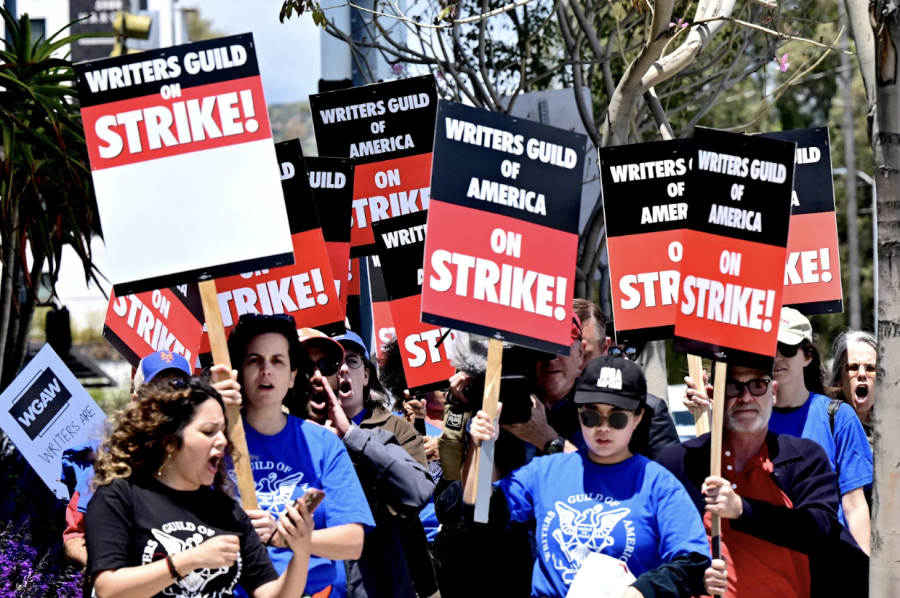The WGA Strike
How much can a writer’s strike actually affect Hollywood and television? To casual TV watchers, it must seem like television writers get paid well to come up with so many brilliant ideas and write many fantastic scripts, but sadly that isn’t the case. In the past decade, salaries for television and film writers have declined 23% with inflation. The Writers Guild of America started striking against the Alliance of Motion Picture and Television Producers for higher pay and more royalties on May 2nd, following their triannual negotiations. The WGA is fighting for a 6/5/5 increase, which means a 6 percent increase to the minimum salary the first year it is implemented, and 5 percent the next two years. One of the WGA’s proposals during the negotiations was a fixed set of residuals plus other residuals that are based on the viewing of the show, which would highlight successful shows. This proposal, along with many others, was denied by studios.
Late night talk shows like The Tonight Show, Jimmy Kimmel Live!, and Saturday Night Live have halted production in support of the writer’s strike. These shows and other late night shows have started streaming reruns instead of the regularly scheduled shows. Even major shows like Stranger Things and Severance have had to stop production due to the lack of writers. The Duffer Brothers, writers and directors of Strangers Things, commented, “Writing does not stop when filming begins. While we’re excited to start production with our amazing cast and crew, it is not possible during this strike”. Another effect of the strike is that the 76th Tony awards won’t be televised or streamed because the WGA has denied the request.
Celebrities have also been supporting the strike, like Tina Fey, who joined the people picketing outside of Silvercup Studios, Drew Barrymore, Mark Hamil, and Seth Myers who said, “I feel very strongly that what the writers are asking for is not unreasonable.” Many other celebrities are doing their share to support the strike by sharing information on social media or joining the protests.
This isn’t the first time the WGA has gone on strike, their first one being in 1970 to insure the rightful compensation for movies airing on TV. The last union strike lasted for more than 100 days stretching through 2007 and into 2008. Studios have had little to say on the topic of the current strike. Depending on how long the strike lasts, there may be a drought in television content until the writers are rightfully paid for their contributions to the industry.

